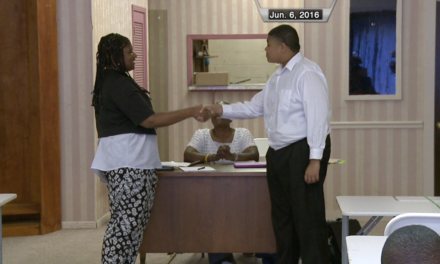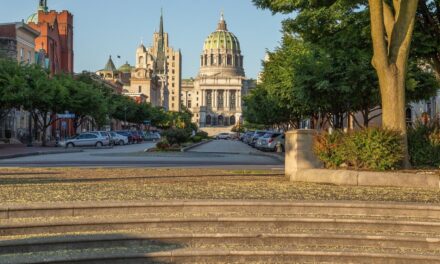
Officials in Oakland, California, are pushing back on Gov. Gavin Newsom’s (D-CA) attempt to swing the state’s political pendulum back toward tough-on-crime policies during an election year, saying they want him to butt out of how they are running their city.
Newsom has been exerting state influence in Oakland and in other cities as spikes in crime draw national attention to the West Coast state.
Newsom’s intervention in Oakland has included deploying California Highway Patrol officers to the city and then quadrupling their shifts. The governor has also come down hard on Oakland’s elected officials, making scathing remarks about how the city is managed, and he said their police pursuit policy is “contributing to Oakland’s public safety challenges.”
Newsom, who was once the mayor of nearby San Francisco, has made Oakland’s crime crisis a focus this year, sending in law enforcement and criticizing embattled Alameda County District Attorney Pamela Price for not accepting help from the state with prosecuting crime.
Earlier this month, he rescinded a previous offer to send state attorneys to help prosecute crime after Price didn’t jump at the offer. Newsom’s office also said at the time that “certain complex cases” would be referred to the California attorney general’s office for prosecution.
Newsom’s heavy-handed approach in Bakersfield, California; Riverside, California; Oakland; and San Francisco has worked to allay fears among worried residents and business owners. It has also helped to tamp down criticism from conservatives over how the state is run.
But it has also drawn jeers from police accountability groups and privacy experts who say Newsom’s “Big Brothering” could have a negative effect on disenfranchised communities and people of color.
“We’re a charter city. We have self-rule,” said Brian Hofer, who leads Oakland’s Privacy Advisory Commission, which recommends policies to the city on technology and privacy rights, including police surveillance. “We certainly need financial help, but we do not need this hostile takeover from Sacramento.”
Newsom tasked state Highway Patrol officers with cracking down on auto, retail, and cargo theft in Bakersfield and fentanyl dealing in San Francisco. Oakland has gotten the brunt of Newsom’s attention and backlash after multiple scandals involving Price, Mayor Sheng Thao, and the Oakland Police Department garnered national headlines.
Thao and Price are facing recalls backed by coalitions of residents and business owners who say their mismanagement has led to lawlessness on city streets and crippling fear.
When Newsom announced he was sending the California Highway Patrol to Oakland, he called the officers “the Swiss Army knife of law enforcement in the state” and said the CHP’s job is “not to substitute, but to support” the work of city officials.
His spokeswoman Tara Gallegos said Friday that local reporting of crime going down in Oakland was “a step in the right direction for the Oakland community, but there is more work to do.”
Hofer agreed and admitted to the Associated Press that the city is “so fractured right now.”
“Fifty percent (of residents) think the CHP should be here and running the show because Oakland City Hall can’t manage itself. The other 50% totally resent this,” he said.
James Burch, a spokesman for the Anti Police-Terror Project, said community activists aren’t really connecting the dots between the specific problems plaguing Oakland and the California Highway Patrol’s role in the matter.
Oakland African American Chamber of Commerce President Cathy Adams also said she hasn’t seen results from the Highway Patrol surge.
“Every call I get is they’ve been broken into and it’s taking too long for people to show up,” she said.
Despite this, Adams said that she supports the additional police resources the Highway Patrol is providing.
“Oakland was starting to get a reputation, like, ‘Hey, come on over. It’s a grocery store. You can get anything you want and walk right out,'” she said.
CLICK HERE TO READ FOR MORE FROM THE WASHINGTON EXAMINER
It’s unclear how far Newsom is willing to go to get Oakland back on track. His office did not respond to calls for a comment.
It’s also unclear if Oakland’s elected officials will continue to accept help from the governor or unite and tell him to stay in his lane.




